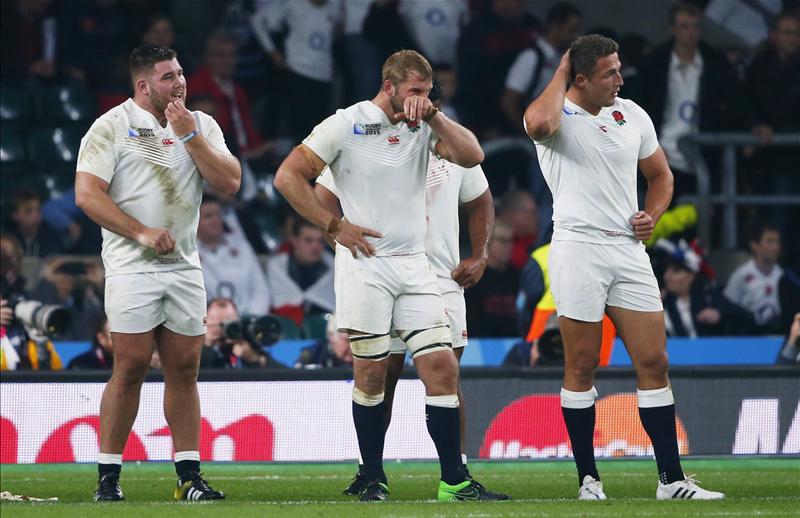England’s Early Rugby World Cup Exit Will Hurt More Than Just the Fans – Tom Mitchell, Sportrisq
October 7, 2015
The Australians have a saying ‘When the flag drops, the bluff stops’ and despite England’s mid-week protestations, they were found wanting on Saturday night.
From Twickenham to Twitter, aggrieved fans nationwide have aired their woes on every platform but the potential cost to business hasn’t gone unnoticed, with even the ITV pundits tentatively broaching the subject.
Citing exact sums is as speculative as the Pool of Death predictions proved to be. Figures range from £6m to £3bn, with advertisers, publicans and listed businesses all mentioned as those affected.
Major sporting events have become an innate part of British culture and, as such, more and more companies are building them into their business plans.
However the problem with sport is that it can go as wrong as often as it goes right; that’s why it is such a compelling spectacle but also why businesses choosing to leverage it need to do so sensibly.
A few years back, following poor end of year figures, the RFU announced that they had ‘budgeted’ for an England Grand Slam.
This was received with widespread derision (not least of all in the other home nations) as there was no contingency for an alternative outcome.
Any company approaching a sporting event in this way is equally exposed – and needlessly so given that there are so many ways they can sensibly manage their risk.

In this regard, sponsors have led the field having had their minds focussed on risk through the contractual obligations of paying out winning bonuses.
Another savvy group are retailers; whilst they have long insured consumer promotions and competitions, where they have been most astute is using forecast probabilities to match expected income and exposure.
However it isn’t all doom and gloom. 466,000 rugby tourists to the UK are either here already or expected shortly, bringing with them spending levels forecast at c.£869m. However, for England fans this is cold comfort and the remaining 27 days of the tournament look to be very long indeed.
Winners and Losers from England’s Early Exit
Losers
Lost advertising revenue: £1m per match for ITV (MediaCom)
£5m hit for publicans and brewing industries (London Business School)
The RFU and rugby in England: local clubs around the country declare a massive uplift in participation following England’s win in 2003. It was hoped that a home event with the hosts going all the way would see a repeat of this. This now looks unlikely.
Winners
Visit England: the tourist board ran a very successful campaign pre-World Cup promoting key England cities as a ‘Home of Sport’ worth visiting. With inbound tourism set to be affected – if not actively improved – the tourist industry booms looks set to continue.
Both Winners and Losers
England sponsors (02, Canterbury, Land Rover, Samsung etc) have created integrated marketing campaigns around the team, but largely will miss out on the “feel good factor” from England progression in the tournament. However they will not have to pay out any win bonuses to the RFU.
Tom Mitchell is a Director of Sportsrisq, a specialist sports finance firm based in London, which helps businesses understand and manage sports performance risk and opportunities. Over the past five years Sportsrisq has managed over £250m in transactions for clients that include international rights holders, global sports brands, leading football clubs and sports marketing agencies. For more information visit www.sportsrisq.com.




